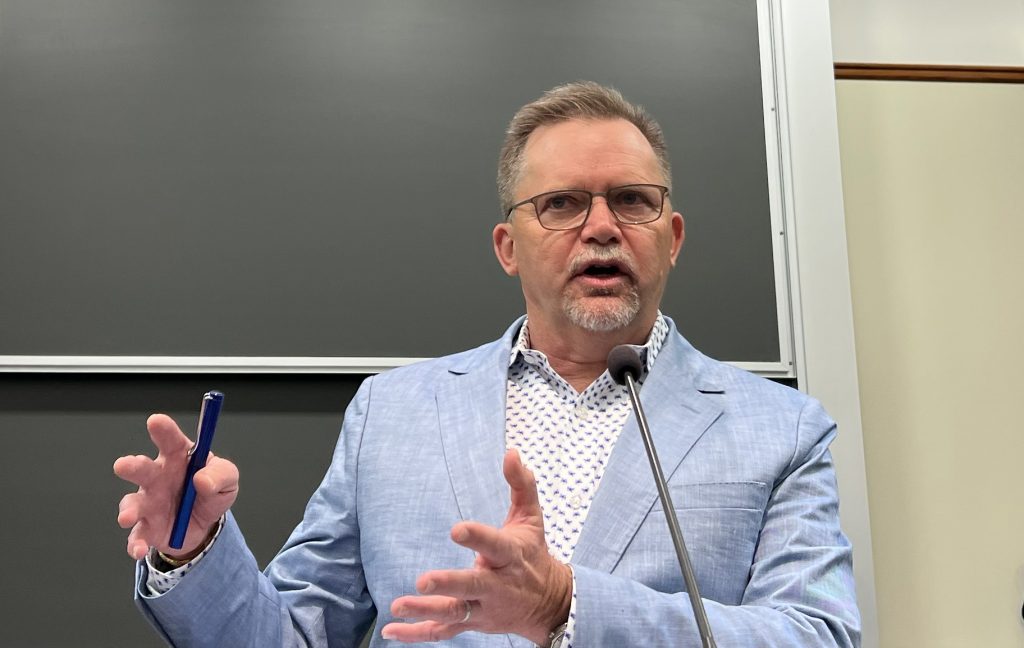Now with a bolstered conservative majority, the Supreme Court this year is poised to decide several major legal battles brewing in the lower courts. BC Law’s Federalist Society recently hosted Josh Blackman, a professor at the South Texas School of Law in Houston, and BC Law’s Kent Greenfield, a constitutional law professor, to discuss the upcoming docket and what could be at stake as the nine justices hear arguments.
Notably, at the close of last term, the Supreme Court overturned the 30-year precedent in Roe v. Wade—a decision applauded by many members of the Federalist Society nationally. With six of the Supreme Court justices appointed by Republican presidents, Greenfield says the Court is being more aggressive than ever. Aggressive on abortion, religion, the administrative state, and race discrimination.
Another notable change, he said, is this court’s willingness to manipulate or make exceptions to what have long been seen as procedural guidelines. “It has taken cases that would not have usually been taken because they weren’t really right procedurally,” Greenfield observed, noting the Court’s manipulation of the facts in several decisions last term.
Greenfield thinks the central issue of this term is going to be race, and he’s keeping a close eye on Merrill v. Milligan, a case out of Alabama determining whether the state’s new congressional map violates the Voting Rights Act.
“In one way, where we are is a success of a movement of conservative lawyers, law professors, students, advocates, judges over the course of a generation,” he said. “But if the overall goal is to convince this generation of law students of the benefits or the values of originalism, textualism, and judicial restraint, this generation of law students is just not going to be persuaded by that at all.”
Blackman says he thinks of things differently. He explained that he’s had trouble teaching substantive due process in the classroom. Blackman posited that for many years, the liberal members of the court created law void of judicial doctrine.
“In other words, the other side had their turn for several decades and was very successful and the conservatives sort of threw their hands up. And now I think conservatives are doing much the same,” Blackman said.
It is healthy for democracy to have shifted from the courts to the legislature for certain decisions, he argued. Blackman was persuaded that once the country starts legislating on abortion, Americans will have “second thoughts” on passing absolute abortion bans.
“If you want to have change, you can’t go to the court. In fact, keep it away from the courts, go to the elected branches. Go to your city council, go to your town council, go to your state legislatures. That’s not a bad lesson. It’s hard. But I think we’re seeing it,” Blackman said.
Greenfield pushed against Blackman’s positivity about the issue of abortion being left to the voters. “The problem with that, of course, is that when we talk about rights, we shouldn’t have to put rights to a vote. The more conservative citizens believe that’s true about gun rights and religious rights and the left believes that’s true about abortion,” he said.
“The question,” Greenfield noted, “is whether the court has overplayed its hand.”



